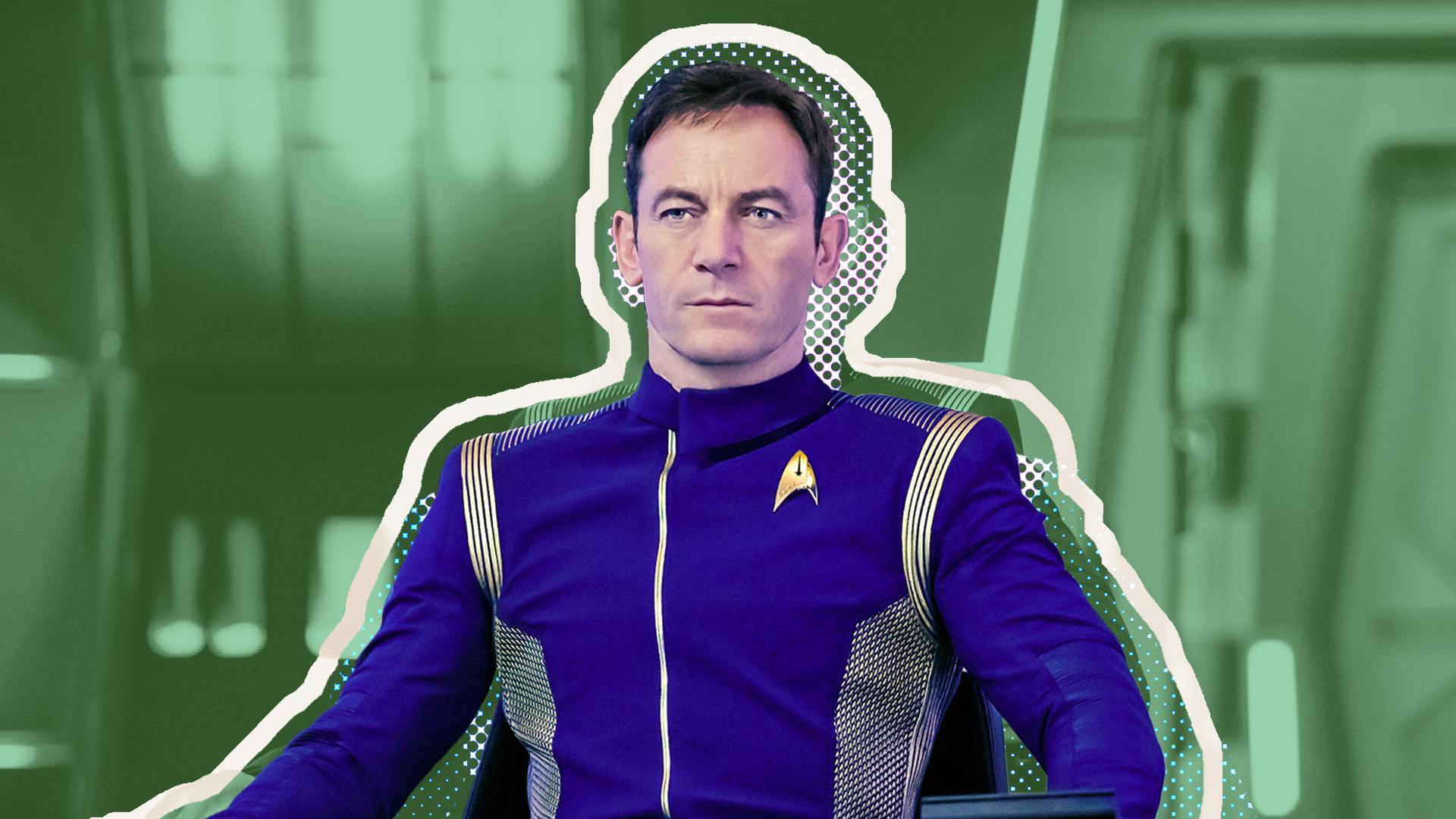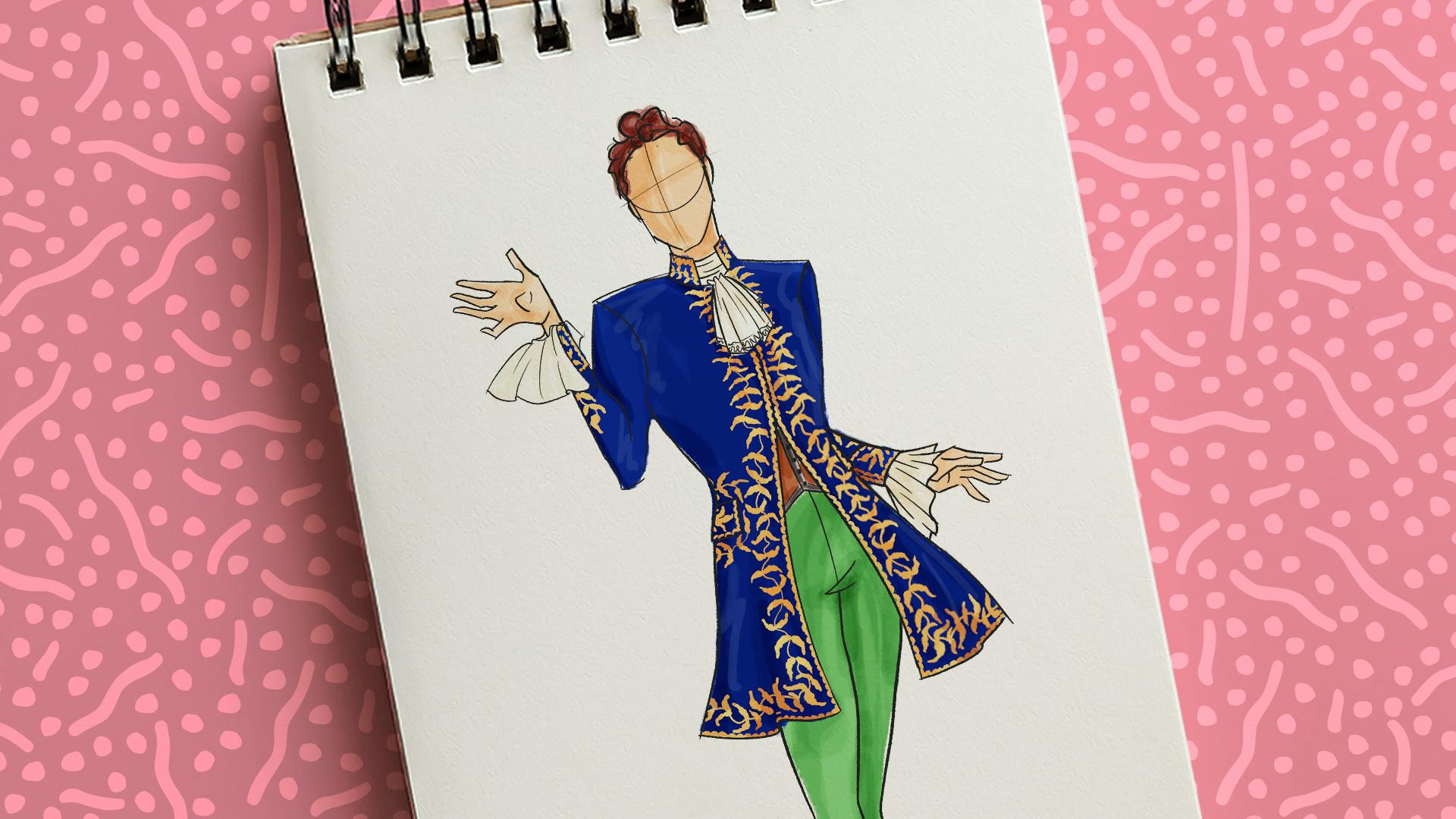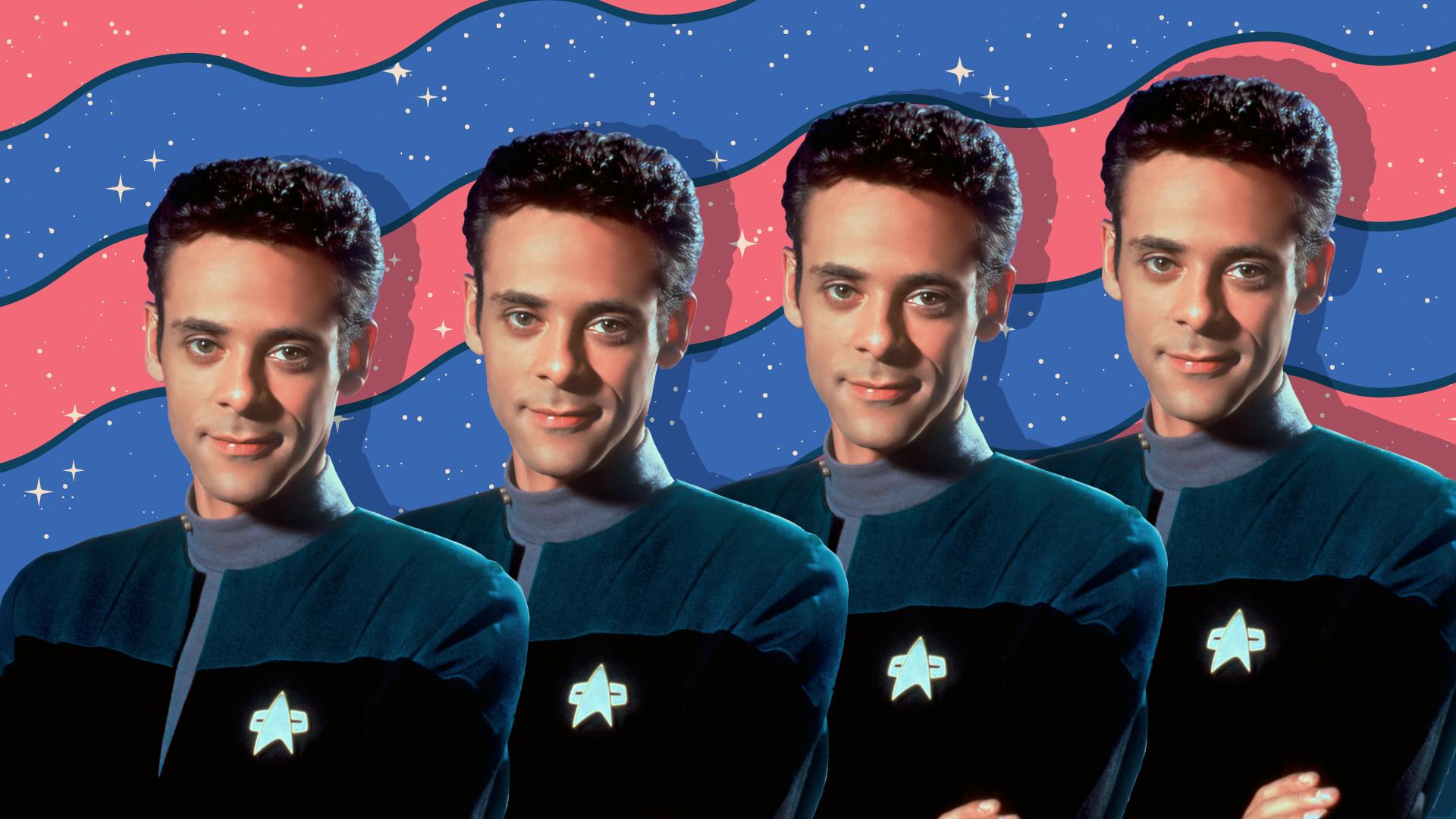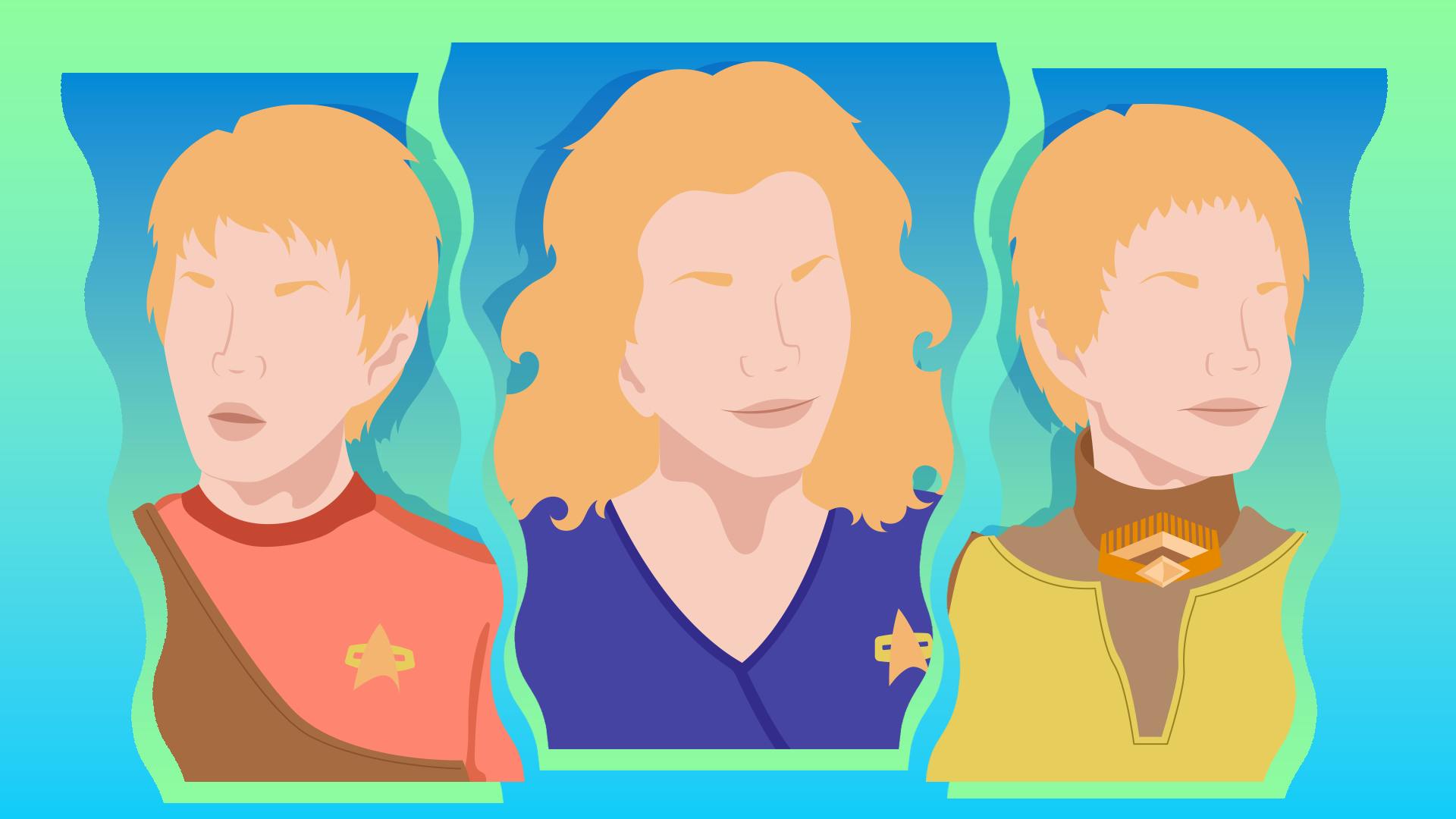Published Sep 21, 2017
INTERVIEW: Discovery Writer-Director, Akiva Goldsman
INTERVIEW: Discovery Writer-Director, Akiva Goldsman
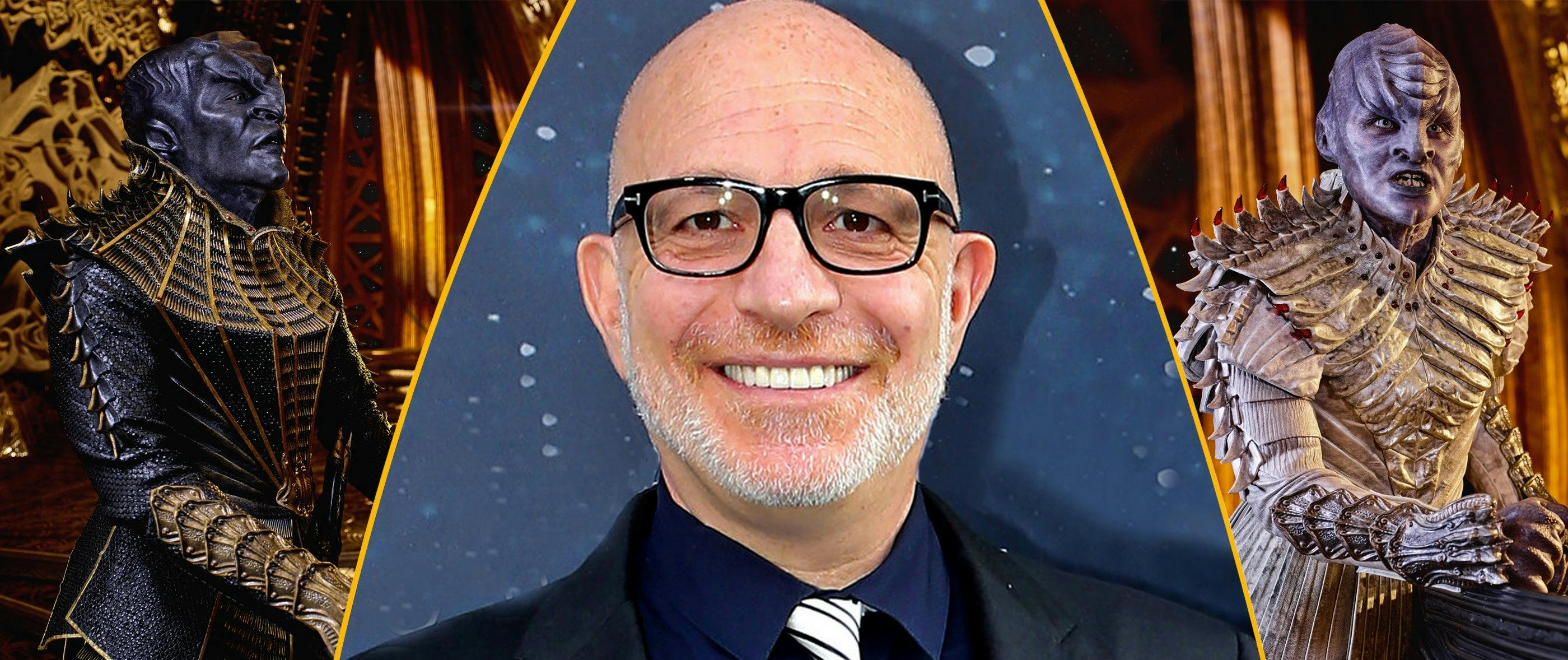
Akiva Goldsman won’t deny it. He’s the ultimate Star Trek fanboy. He also happens to be a veteran screenwriter, producer and director who is adding Star Trek: Discovery to a lengthy list of film and television credits that includes Batman Forever, Practical Magic, A Beautiful Mind (for which he won an Academy Award), I, Robot and The Da Vinci Code to I Am Legend, Fringe, Lone Survivor, Underground and Rings. Goldsman – who played a Vulcan Council Member in Star Trek (2009) and a Starfleet Admiral in Star Trek Into Darkness – is a writer-producer on Discovery and is directing two first-season episodes. StarTrek.com met up with Goldsman at Star Trek Las Vegas… or tried to. Remember the walk-and-talks on The West Wing? This chat with Goldsman was conducted with him over the course of about 10 minutes as he ping-ponged from the Discovery Exhibit at STLV to the backstage area of the Leonard Nimoy Theatre in advance of his Discovery writers panel with Kirsten Beyer and Ted Sullivan, which would take place moments later. Here’s what he had to say:

How deep is your affection for Star Trek and what do you appreciate most about it?
So deep. So sadly, pathetically deep. Deep like a crazy person. Deep like my first Star Trek convention was in 1976. Deep like I got J.J. (Abrams) to put me in both movies. I have a bubble gum card from the first one with my character on it. I don't even think he has a name. I'm just Vulcan Science Council, but I've got a bubble gum card. It's in Lucite in my office. I had the ship blueprints when they came out. I got the Christie’s catalog (for the famous Trek auction). There are deeper, but I'm pretty good.
The story goes that you literally lobbied J.J. Is that true?
I did, 100%. I literally just asked him. I've known J.J. for a long time. I introduced him to his wife, so I thought I would call in that favor. Twice.
So, what's the bigger thrill for you: being in two Star Trek movies, or writing/directing a Star Trek series?
Oh, writing Star Trek, being part of building Star Trek. Being in a movie is actually horrific. The idea of it is delightful, but unless you're an actor, it's actually just hard and anxiety-provoking that you will fail. But the idea that I get to be part of re-creating or inductively creating this piece of this universe is impossible (for him to wrap his head around). I can't imagine anything for work that could make me happier.
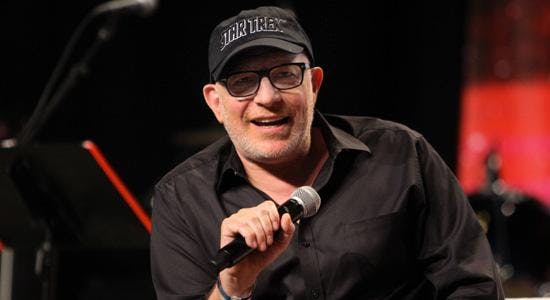
What excites you most about this story that you're telling with Discovery?
Well, I think I'm really excited to be able to do longform storytelling in Star Trek, because I think that's the gift of what's happening on television now is the full embrace of serialized narrative. I did a show some years ago called Fringe, and we were still in the bargaining phase with the networks of one standalone and then serialized, standalone, serialized. Now, with Discovery, we're fully serialized, which is awesome, and we're telling a kind of story that we believe is important, which is about diversity, it's about inclusion. It's about how cultures co-exist, and I think that has always been timely, but I think it's unbelievably timely right now.
You just used the word timely. How complicated is it to do timely when Discovery is set 10 years before the events of The Original Series, which was timely back when it was on the air more than 50 years ago?
(Laughs knowingly) Look, I think all Star Trek is timely. And I think that part of when Star Trek works is it manages to really nicely address social context, but it does it in a way that isn't overt. What is great about science-fiction is it's a beautiful carnival mirror for human experience. And, because it requires imaginative participation, I think it allows people to explore parts of themselves that they are less able to in more conventional genre projects.
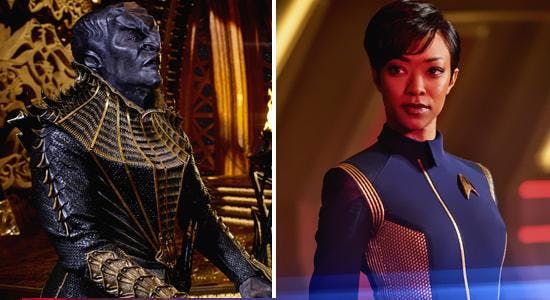
You know some fans out there are worried about this being a prequel. They worry about the Klingons looking so different. They're worried about Michael Burnham, the central character, not being a captain. What do you say to allay their fears?
Give us a chance. Look, as I said, I put my love for Star Trek up against almost anyone's, and I'm really proud of the show, and I think it really is deeply Star Trek. I think that'll be enough.
We know you can’t discuss details of the first episode you directed, but how did you enjoy directing Trek, and what did you feel you brought to it?
I loved it. I couldn't have had a better time. It was an honor. And, by the way, it was sort of a hybrid between TV and features because it's character drama, but it's deep visual effects. So, it was sort of nice to be able to exercise both gears.
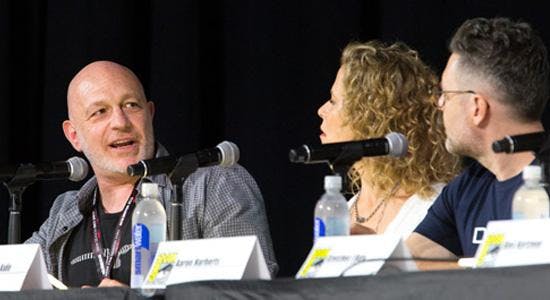
Did you cast yourself in a role in your own episode?
I did not, but there's still time. I'm directing the season finale.
And then lastly, Discovery is being made for CBS All Access and Netflix. What does that let you do that you’d not be able to do if you were on a traditional network?
I think it just gives you more opportunity to go where the story wants you to go, and we're trying to take on themes that are resonant. And, also, they are themes that would have always been tackled by Star Trek, but you just feel a little less confined, I think.
